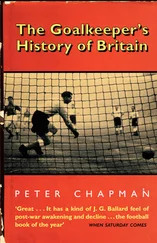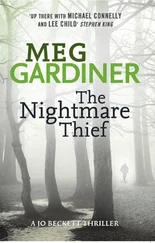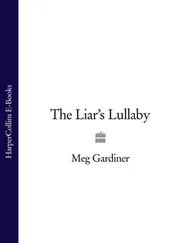The NCCL (now Liberty) had been set up by a one-time actor and freelance journalist, Ronald Kidd, who also owned a radical, free-thinking bookshop, the Punch and Judy, in Villiers Street, where unexpurgated copies of D.H. Lawrence’s Lady Chatterley’s Lover or Radclyffe Hall’s Well of Loneliness could be purchased, as well as books about the Soviet Union which were not ‘full of hysterical anti-communism’, and the barrister, writer and soon-to-be Independent MP, A.P. Herbert, as a result of Kidd’s disquiet at the behaviour of police agents provocateurs during the 1932 Hunger March, and Herbert’s unease at the police acting as ‘bandits’, ordering drinks in nightclubs after hours in order to secure convictions. The civil libertarians peered down at ‘the sea of hats in the Park — caps, trilbies, hard felts and the occasional bowler’ marching through the grey, slanting drizzle, and some ventured down to the edge of the crowds to get a closer look. The music of the pipe and flute bands of the Scottish marchers (Glasgow’s contingent alone boasted eight flute bands) hung in the air, interspersed with much shouting of slogans and singing of ‘The Internationale’ as the lines of unemployed marched in step, watched by lines of police, one unit atop Marble Arch with a telephone, ready to direct operations and summon reinforcements in case of trouble.
Joseph Albaya, who had been on the road for sixteen days, recorded:
Got up late for the GREAT DAY … put on clean shirt … long boring wait at Friends’ Meeting House where leaders entertained us in usual fashion by usual speeches — fell in outside, raining on my new outfit … put on selling Hunger March Bulletins — papers not counted so had plenty of chances of making a dishonest penny — rather alarmed by the reports of the older marchers of not keeping to the ranks consequently rather felt like a hero [sic] lined outside for ration of oranges and cigarettes and the singing of the daily ritual (the ‘Internationale’) — set off in fine style — rather impressed by the military bearing and dignity of the comrades — the consciousness that it was their Great Day had made the marchers buck themselves up — the contingent headed by Scottish pipers, fifes and drums … raining lightly all the time — my papers getting wet and not selling — soon picked up a companion who was trying to convey the usual idea that we were in for a blood bath — crowds increasing — also police contingent headed by three mounted policemen … under the command of a military-looking old bastard … Noticed that comrades’ London banners are much bigger and better than provincial ones and that London comrades are much more militant and less apathetic than provincial comrades [possibly partly because they were less exhausted] … the police led us into a better class district off the main traffic roads — blocks of imposing flats — I went berserk … yelling obscenities at the occupants of the flats — I was sobbing with rage — I never knew what class consciousness was until that moment — I was ready to do anything, charge the police, smash up everything in sight — it was the way the occupants of the flats looked at us … every flat seemed to have a balcony from which they laughed at us and then contemptuously threw down money — their contempt was so open that even the dullest of the marchers could see it. Christ! … if they had been on a level on us and not above us on their balconies well … I should have taken part willingly in my first riot.
Jack Gaster, a young lawyer, was the ILP representative on the London reception committee:
I was based in Marylebone and we were always organising the Hyde Park meetings … we used to go down to some stables behind Great Ormond Street owned by the Co-op and arrange for eight or ten horse drawn vehicles to come to Hyde Park to form a platform. In those days … there were no loudspeakers or anything like that … I had to marshal [the marchers] out of Hyde Park which was a very important job because we were determined to march down Oxford Street. The police were determined that we shouldn’t. They wanted to keep the marchers off the main streets. There were hundreds of thousands in the Park. We arranged for part of the march to leave Hyde Park by the Bayswater Road entrance … and another part to go out via Park Lane … and both to converge … There were police lined up, very senior officers because it was a very important thing, ‘mounties’ too. They said ‘Sorry, Mr Gaster, you can’t go down Oxford Street.’ I said ‘We’re going down.’ I was trembling in my shoes … but I very carefully put the Scottish marchers behind me. They were the real tough ones. I said, ‘These lads haven’t walked from all over England to be pushed into the back streets.’ ‘Sorry, we can’t allow it.’ I said, ‘Very well. We’re going down Oxford Street and the responsibility is yours … There’s going to be a fight. Do you want a fight? Does the government want a fight?’ They withdrew and we marched down Oxford Street.
In the event the entire occasion went off peacefully: ‘not a scuffle, not a baton raised. No report from anywhere of even so much as a pane of glass broken. No bloodshed!’ the NCCL observers, who had had no need to pick up their phone, recorded. The same was the case at a rally in Trafalgar Square.
After queuing in the snow some two hundred unemployed marchers were allowed into Parliament, where some struck up ‘The Internationale’ in the Central Lobby, while those allowed into the Strangers’ Gallery interrupted debate by shouting ‘Hear the Hunger Marchers!’ and ‘Down with the Starvation Government!’ All were ejected, and they eventually returned home without having been able to present their petition to Parliament, the reduced train fares that had been negotiated with the railway companies covered by money raised on the march.
However, some female textile marchers, led by Maud Brown, the women’s organiser of the NUWM, had managed to penetrate 10 Downing Street and confront Ramsay MacDonald’s daughter Ishbel, who was ‘very friendly [and] offered … tea … but on a point of honour we refused it’, recalled Mary Johnston, one of Miss MacDonald’s unexpected visitors. ‘We felt it would be weakening our position if we accepted tea.’ Before they left the Prime Minister’s daughter suggested that maybe the unemployed women might try domestic service, according to one of them.
Ramsay MacDonald refused to grant the marchers an audience. ‘Has anyone who cares to come to London, either on foot or in first-class carriages, the constitutional right to demand to see me, to take up my time, whether I like it or not?’ he asked rhetorically in the Commons a few days later. ‘I say he has not.’
Sir Herbert Samuel, the Liberal leader and former Home Secretary, was despairing:
No one can say that the grievances of these men, who have walked to this city from many parts of this island, are trivial or imaginary … What should they have done other than what they have done, if they want to draw the attention of the nation to their plight, to stir the nation out of what is really a shameful complacency, and to protest against the utterly inadequate measures that have so far been taken? Are we to say to them, ‘If you are disorderly, we cannot listen to you; it would be to discourage disorder. If you are orderly, we need not listen to you?’ …
It is said that they are Communists, and therefore that they ought to be ignored. Let us not attach so much importance to labels, but see the realities behind the name. There is not here, and everyone knows it, any deliberate plan or attempt to overturn society. This march is nothing more than a protest, a bitter cry. They say to us: ‘Hear us; see us; help us.’ It is that and nothing more …
Читать дальше












